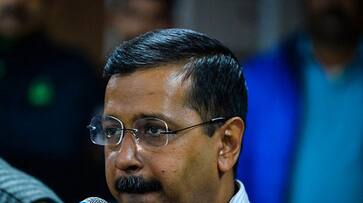While the law department of the Delhi government is not bound to return the case file within a timeframe, lieutenant general Anil Baijal can ask for it and sanction the prosecution of JNU students accused of sedition
New Delhi: While the Delhi Police's elite wing Special Cell said to a court in the city during the filing of the charge sheet in the JNU sedition case that it is up to Delhi chief minister Arvind Kejriwal to grant the permission of prosecution of the students accused of sedition, the government of the city-state has limited powers in the matter. There is, of course, a legal team of the Delhi government that fights cases on behalf of Delhi Police.
Like in many cases, here too, the supreme power rests with Delhi lieutenant general Anil Baijal. He has the ultimate authority to sanction such prosecutions. Kejriwal can but delay the process by holding up the file.
MyNation spoke to several IAS and IPS officers in this regard. They said that the LG can clear the file soon if he wants to, as he is the supreme authority in the Delhi administration.
Why charge sheet requires Delhi government’s approval
Like any other case, there must be a complainant who gives the first information to the police. Normally, this complainant is the victim or his/her family gives. But in this matter, the government has filed an act of sedition; so, it requires the sanction of the state/UT where the act took place.
Delhi government may give the sanction to prosecute the accused after analysing the charge sheet. The local government’s legal team will analyse whether the police have sufficient evidence and witnesses to even start the trial of sedition.
How Kejriwal can delay the sanction
Now, Delhi Police will give a copy of the charge sheet to the government of Delhi. It is likely that the file will move to the law department of the Delhi government for vetting by the government counsel. Here comes the jurisdiction of Arvind Kejriwal as former AAP member Rahul Mehra, who currently heads the panel of counsels of Delhi government. This team will get a chance to read the charge sheet and point out flaws. There is no time limit to clear the charge sheet. Importantly, government counsels can deny that sedition charge can’t be slapped on the basis of the evidence and witnesses police have.
LG can expedite the process
Ultimately, the Delhi LG, via Delhi’s home department, will give the sanction for the prosecution to Delhi Police. Even if there is a delay from government counsels, Delhi LG Anil Baijal can ask for the file directly to approve the prosecution of JNU students accused of sedition. He can also ask the counsels to complete the task within a limited time.
Last Updated Jan 21, 2019, 2:18 PM IST









![Salman Khan sets stage on fire for Anant Ambani, Radhika Merchant pre-wedding festivities [WATCH] ATG](https://static-gi.asianetnews.com/images/01hr1hh8y86gvb4kbqgnyhc0w0/whatsapp-image-2024-03-03-at-12-24-37-pm_100x60xt.jpg)
![Pregnant Deepika Padukone dances with Ranveer Singh at Anant Ambani, Radhika Merchant pre-wedding bash [WATCH] ATG](https://static-gi.asianetnews.com/images/01hr1ffyd3nzqzgm6ba0k87vr8/whatsapp-image-2024-03-03-at-11-45-35-am_100x60xt.jpg)


